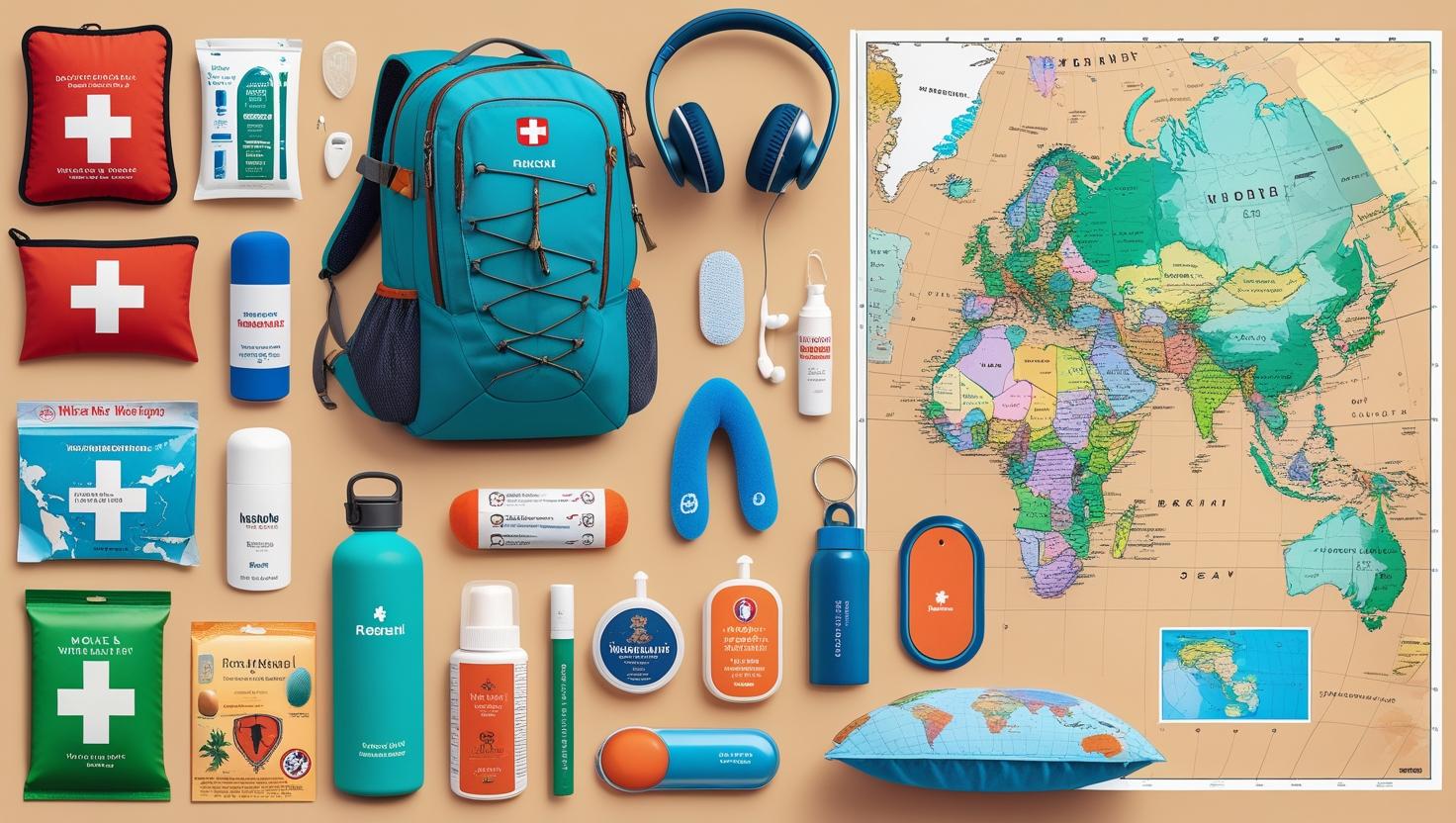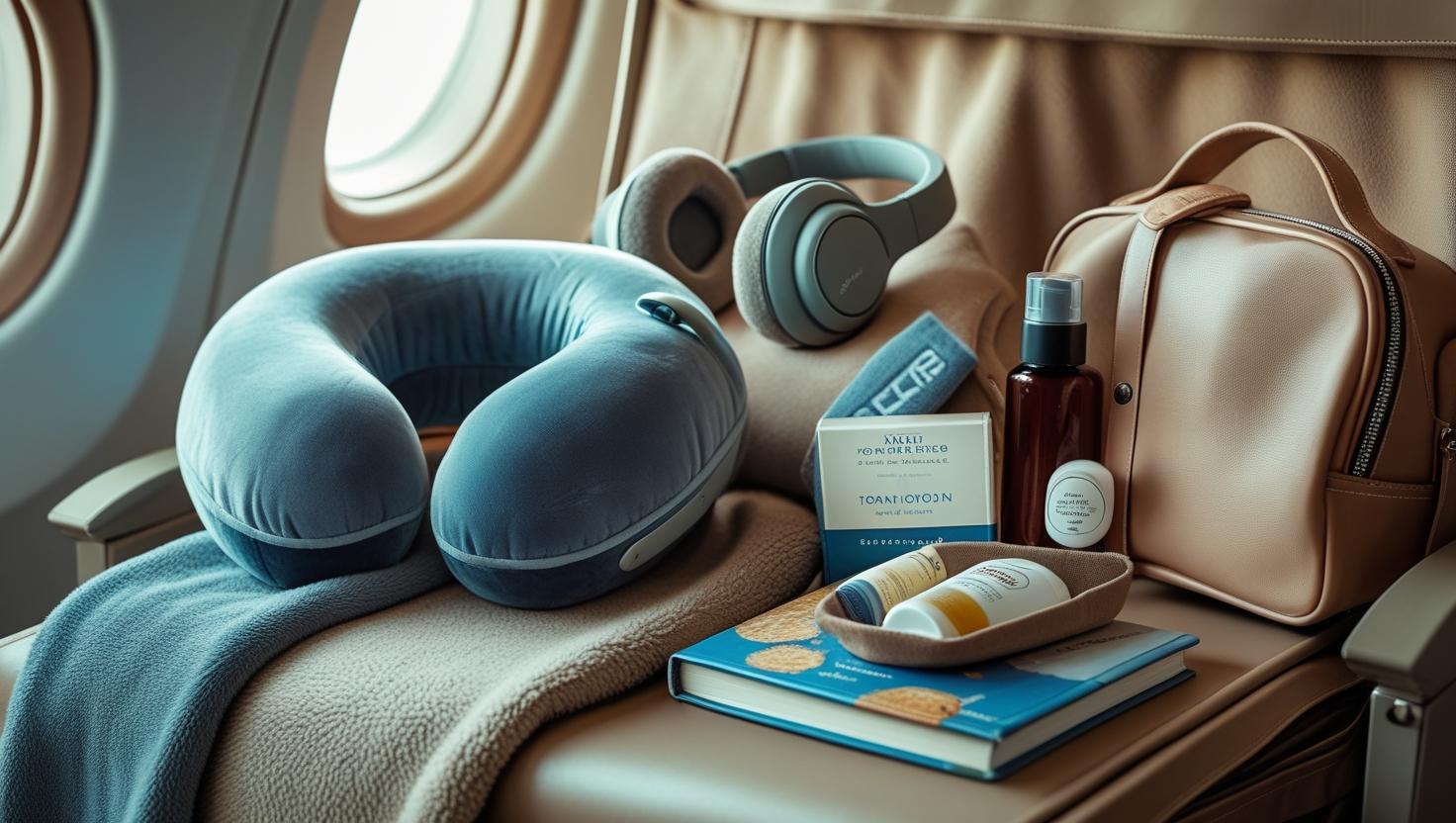
Health and Safety Products for Travelers
Traveling can be one of life’s most enriching experiences, offering opportunities to explore new cultures, meet new people, and create lasting memories. However, it also comes with its share of health and safety risks. Whether you’re traveling domestically or internationally, being prepared with the right health and safety products can help ensure a safe and enjoyable journey. In this article, we will discuss essential health and safety products that every traveler should consider packing, along with tips for using them effectively.
1. First Aid Kit
1.1 Importance of a First Aid Kit
A well-stocked first aid kit is a must-have for any traveler. It can help you address minor injuries and ailments quickly, reducing the risk of complications during your trip.
1.2 Essential Items to Include
When assembling your first aid kit, consider including the following items:
- Adhesive Bandages: Various sizes for covering cuts and scrapes.
- Antiseptic Wipes: For cleaning wounds and preventing infection.
- Gauze Pads and Tape: For larger wounds that require more coverage.
- Pain Relievers: Over-the-counter medications like ibuprofen or acetaminophen for pain relief.
- Allergy Medication: Antihistamines for allergic reactions.
- Thermometer: A digital thermometer for monitoring fevers.
2. Personal Medications
2.1 Importance of Carrying Medications
If you take prescription medications, it’s crucial to bring enough for the duration of your trip, along with any necessary documentation.
2.2 Tips for Packing Medications
- Keep Medications in Original Packaging: This helps avoid confusion and ensures you have the necessary information, such as dosage instructions.
- Carry a Doctor’s Note: If you’re traveling with prescription medications, especially controlled substances, having a note from your doctor can help avoid issues at customs.
- Pack Extra Doses: Consider bringing a few extra doses in case of travel delays.
3. Travel Insurance
3.1 Why Travel Insurance is Essential
Travel insurance can provide peace of mind by covering unexpected events such as trip cancellations, medical emergencies, or lost luggage.
3.2 Types of Coverage to Consider
When choosing travel insurance, look for coverage that includes:
- Medical Expenses: Coverage for medical emergencies and hospital stays.
- Trip Cancellation: Reimbursement for non-refundable expenses if you need to cancel your trip.
- Emergency Evacuation: Coverage for transportation to a medical facility in case of serious illness or injury.
4. Hygiene and Sanitation Products
4.1 Importance of Hygiene Products
Maintaining good hygiene is essential for preventing illness while traveling, especially in crowded environments.
4.2 Essential Hygiene Products to Pack
- Hand Sanitizer: A travel-sized bottle with at least 60% alcohol to kill germs when soap and water are unavailable.
- Antibacterial Wipes: Useful for cleaning surfaces or wiping hands when you can’t wash them.
- Face Masks: Depending on your destination, wearing a mask can help protect you from airborne illnesses.
- Travel-Sized Toiletries: Include soap, shampoo, toothpaste, and deodorant to maintain personal hygiene.
5. Safety Products
5.1 Personal Safety Items
Ensuring your personal safety while traveling is crucial. Consider packing the following items:
- Whistle: A small whistle can be used to attract attention in case of an emergency.
- Personal Alarm: A portable personal alarm can deter potential threats and alert others if you feel unsafe.
- Pepper Spray: If permitted in your destination, pepper spray can be a useful self-defense tool.
5.2 Travel Security Accessories
- Money Belt or Hidden Pouch: Keeps your valuables secure and out of sight while you’re on the move.
- Luggage Locks: Use TSA-approved locks to secure your luggage and deter theft.
6. Sun Protection
6.1 Importance of Sun Protection
Protecting your skin from harmful UV rays is crucial, especially when traveling to sunny destinations.
6.2 Essential Sun Protection Products
- Sunscreen: Choose a broad-spectrum sunscreen with at least SPF 30. Remember to reapply every two hours, especially if swimming or sweating.
- Sunglasses: Look for sunglasses that offer 100% UV protection to shield your eyes from harmful rays.
- Wide-Brimmed Hat: A hat can provide additional protection for your face and neck from the sun.
7. Insect Repellent
7.1 Why Insect Repellent is Necessary
Insect bites can lead to discomfort and, in some cases, serious illnesses such as malaria or dengue fever.
7.2 Choosing the Right Insect Repellent
- DEET-Based Repellents: Look for products containing DEET, picaridin, or oil of lemon eucalyptus for effective protection against mosquitoes and other insects.
- Natural Alternatives: If you prefer natural options, consider essential oils like citronella or lavender, but be aware that they may not offer the same level of protection.
8. Emergency Contact Information
8.1 Importance of Keeping Contacts Handy
Having emergency contact information readily available can be invaluable in case of unexpected situations.
8.2 What to Include
- Local Emergency Numbers: Research and note down local emergency services numbers for your destination.
- Contact Information for Your Embassy: Keep the contact details of your country’s embassy or consulate in case you need assistance while abroad.
- Emergency Contacts: Have a list of emergency contacts back home, including family members or friends who can be reached if necessary.
9. Conclusion
Traveling can be an incredible experience, but it’s essential to prioritize your health and safety while on the go. By packing the right health and safety products, you can prepare for unexpected situations, maintain good hygiene, and ensure your overall well-being during your journey. From first aid kits and personal medications to hygiene products and safety accessories, being well-prepared will help you enjoy your travels to the fullest. Safe travels!


